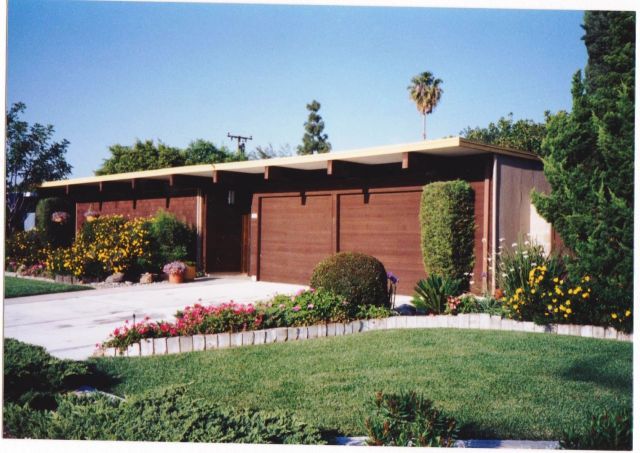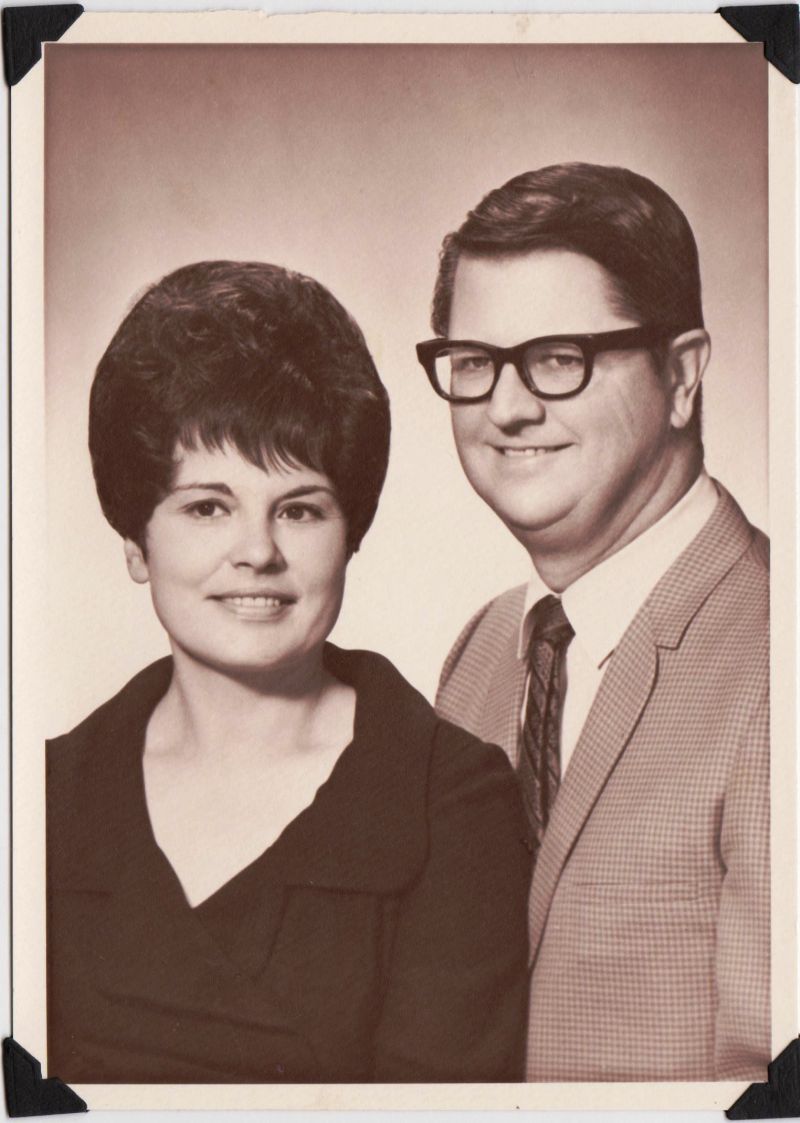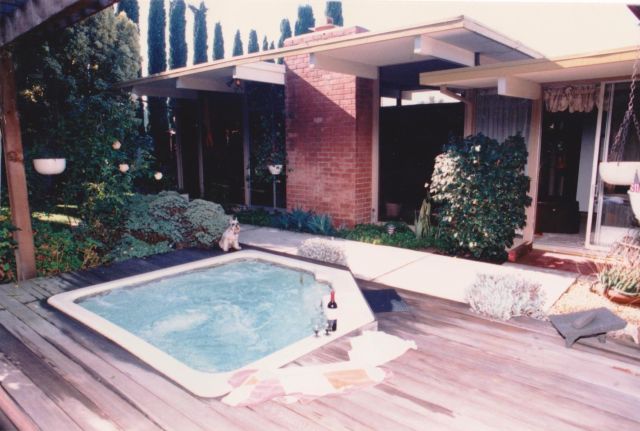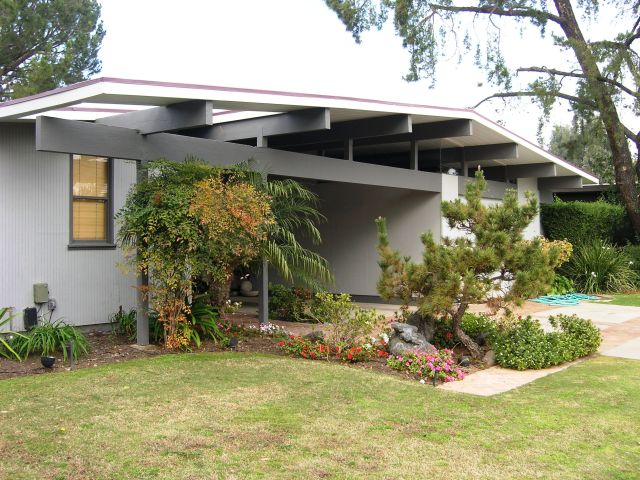
When Selling Eichlers Was No Easy Task
 |
|
|
It’s tempting to tell the tale of Alexandria “Alex” Wilson by opening with the most dramatic moment of all. But that wouldn’t represent the more day-to-day challenges this young woman faced in the early 1960s as her marriage collapsed, she had three young children to raise, and the homebuilder she worked for was running into problems of his own.
Which she helped solve.
Alex, whose last name was Cassidy at the time, began working for Joe Eichler in Walnut Creek in 1960 as a hostess. At first she was unpaid, then paid by the hour.
Hostesses greeted visitors to model homes, handed them brochures, then steered them to the salesmen, in Alex’s case her husband, Mel Cassidy, a former camera salesman.
The Cassidys came to their jobs after falling in love with an Eichler home in Lucas Valley, Marin, and buying it.
“I just walked into the Anshen and Allen atrium, and I sat down and I said, this is it. I’m not gonna go any farther,” recalls Alex, who lives today in Newport Beach.
 |
|
|
“Eichler didn’t want to have real estate people sell his homes,” Alex says. “He was looking among people who were his buyers who were salesmen.”
“He had a way of training his salespeople to sell his houses because they were so unique and different,” she says.
Joe recruited Mel, who worked first in Rancho San Miguel in Walnut Creek, where the couple lived in a model home, then in a subdivision in Sunnyvale. Then came the big offer.
The salesman handling Eichler’s venture in the city of Orange, way down south, was homesick for Northern California.
“He asked us if we would like to come down, and we jumped for joy,” Alex says. She and Mel loved warmth and the beach and, she says, and they would enjoy being away from the corporate office.
“It would be a scary thing to have the boss come to see what you’re doing all the time,” she says. “We were almost independent down here [in Orange], because he didn’t come around here very often.”
Not that Alex or Mel had anything against Joe, whom Alex describes as “really a pretty nice guy.” She adds, “Mr. Eichler was very kind to us as a family.”
The Cassidys handled sales at all three Orange subdivisions. They lived in several Eichlers, finally settling on one where Alex lived for 30 years, raising her family there as a divorced, and then as a remarried, mom. Mel and Alex had three children, all born within three-and-a-half years – a boy, a girl, another boy.
Mel was a good salesman and did well. But Orange was a very different place from the Bay Area, and not always in a beach and sunshine way.
 |
|
|
“It wasn’t an easy task down here to sell the Eichlers,” Alex says, recalling how, early on, someone had explained to her that Eichler did not discriminate based on race. “I said, I don’t care. I agree with his philosophy.”
In Orange, a bastion of conservatism at the time, she was shocked at “how prejudiced people were down here. The John Birch Society was big.”
Black people were moving into nearby Santa Ana, she says, and fear of blacks moving next door spread to Orange.
The original Orange salesman had sold to two African American families, she says. Then she and Mel arrived and faced the fury. “We had a cross burned at our home because [Eichler] had sold to two black families,” Alex says. Asked for details, she says, “We were just upset.”
Beyond prejudice, though, Eichler homes seemed to have less appeal in Southern California than up north. “They’re very unique and different,” she says.
Around this time, Alex says, Mel “pretty much had a nervous breakdown,” which ended their marriage and his employment with Eichler.
 |
|
|
“There was a lot of turmoil in my life,” she says. She became a real estate salesperson – among the first women sellers in the area. “There were only two real estate offices here that would hire women at the time. We’re talking 1964.”
Not that the firm she joined was ideal. “The sales manager at Time Real Estate said to us, if a black person walks into this office, go out the back door.”
Now she was selling Eichler homes on her own, as Joe was winding down the last of his Orange subdivisions and selling off some land once planned for his houses.
“He would give me listings for his houses there. People knew he needed to sell them,” she says. Alex managed to sell the last remaining Eichler homes.
Eichler Homes was in financial trouble in the early 1960s, and would soon be in bankruptcy. Alex mentions the affordable mass housing he was building in San Francisco at the time as a contributing factor.
Then Alex focused on selling Eichlers in the resale market. But, she says, she could never have made a living specializing in them, as they were not the in-demand commodity they have become.
“Most agents wouldn’t handle Eichlers. If someone said they wanted to buy an Eichler, they would refer them to me.”
Alex recalls the last time she saw Joe, while visiting the Bay Area with her new husband and stopping by one of his last tracts. He was selling the homes himself.
 |
|
|
“He wasn’t well. He didn’t look good,” she says. “It was really sad, in a way, because he was such a powerful man.”
Alex retired in 1982. Later she sold her Eichler to move to the mountains. “When I sold my house I was just in tears,” she says.
Alex recently attended a tour of Eichlers in the city of Orange, where the Eichler tracts are now historic districts, and was treated like a celebrity. “The people were really neat. ‘Ohmigosh, you knew him!' It was like I knew God.”
“It was such a tremendous experience selling the Eichlers,” she says. “And now, now, Dave, they have become historic homes!”
- ‹ previous
- 638 of 677
- next ›



